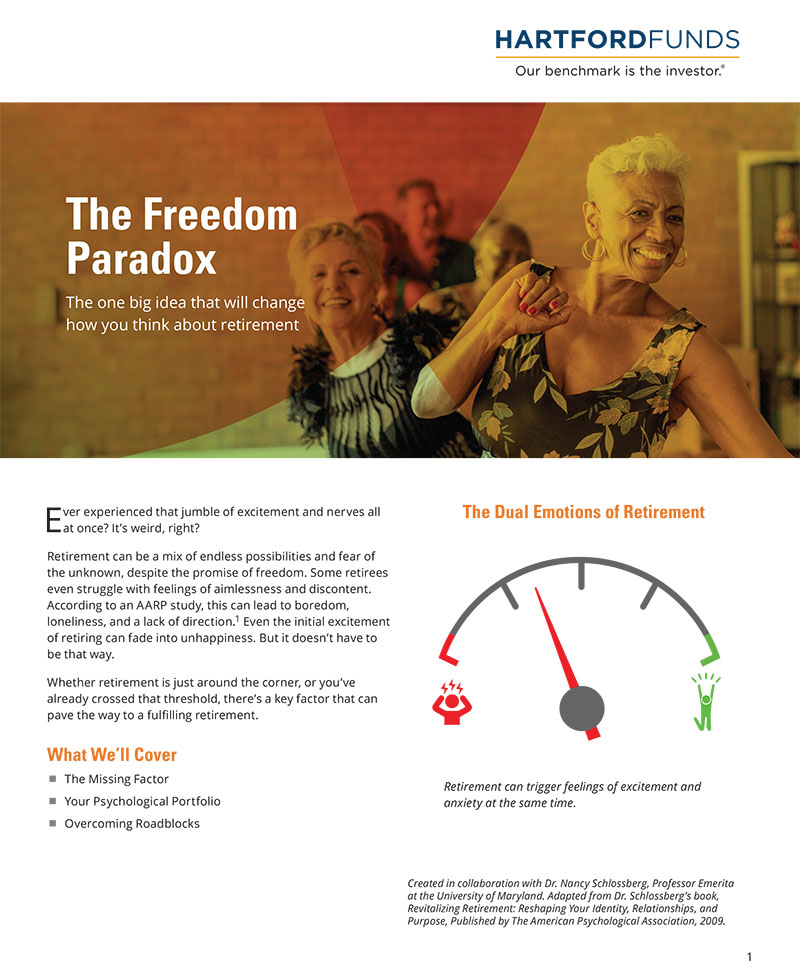Aging Well as an Act of Improvisation
Nancy K. Schlossberg of Sarasota, a professor emerita of counseling psychology at the University of Maryland, has published nine books on coping with transitions in life. This month, at 87, she is bringing out what she says will be the final one: “Too Young to be Old: Love, Learn, Work and Play as You Age,” from the American Psychological Association. The book draws on interviews and academic research, but also shares some of her own life experiences — including Schlossberg’s successful ventures into online dating in a chapter titled, “Go for Romance (If You Want It).”
Q: One of the things I noticed about your latest book is that there seems to be a lot more in it about you personally.
A: There’s no question about that. There are two memoirs in it. Is there too much of me?
I guess it didn’t seem appropriate before. I wrote a book proposal, and the selling point was that I am an old lady, and I’m writing about aging, and I’m a professional. What it’s done is made me terribly comfortable about saying my age, and being old and looking old. It’s very, very freeing.
Q: One of the anecdotes I loved was your airline experience, where you were flying into a violent storm and you decided to focus on a worst-case scenario. You came up with the happy thought that you hadn’t yet outlived your savings, so you could leave something to your children if the plane crashed.
A: I said to my son Mark when he met me at the airport, “You just lost some money.”
A: Well, we’ve discussed the issue of reframing (a psychological term for considering things in a new way in order to transform one’s thinking) before, in our conversations.
I will tell you an example on reframing: The other night we were with six other people at dinner, and the service was horrible, and everybody was bitching because they wanted to go see a movie. Finally I said, “Listen, it’s terrible; I know it’s terrible. But look at how lucky we are: We have more time together.”
When you try to trick yourself into thinking about it differently — I think I did a lot of that after my husband died. I would say things to myself. There’s a lot of research that does show that self-talk can alter the way you think about things. I said to myself, “Look, you have a choice: You can be a tragic figure and everyone will feel sorry for you. Or you can be grateful and appreciative about what you have.”
Q: In the book you talk about non-events, and the “ripples” you can feel from other people’s lives: “Everybody I know has a grandchild and I don’t,” or “Everybody has been to Paris and I haven’t.” Why is this feeling that you’re missing out on something a hazard of age?
A: I wrote a whole book on non-events. If you don’t want children, not having children is not a non-event. But if it’s something you expected and wanted and didn’t get, that’s a non-event. So the person is the definer of it.
Does it loom larger as you age? I don’t know the answer to that. But I think if you let it make you become an isolated person, pulling back from things, it’s not good.
Q: You do write in the book that it’s natural as you age for your number of “possible selves” to become limited: Maybe once you turn 50, say, you can no longer become a trapeze artist. Is that necessarily a bad thing?
A: Well, not necessarily, because it’s reality.
On the other hand, for me, once you’re in your 80s, there’s a qualitative difference. When you start to see those limits depends on you — it can be in your 60s or 70s.
Q: The book talks about being flexible when you face these limitations, and the importance of improvising. You write: “First we try one thing, then we turn the kaleidoscope lens a bit more, we see life in a new way, and try something new yet again.”
A: I think shifting the kaleidoscope is a way of understanding reframing. I don’t want to sugarcoat aging, because there are a lot of negatives and a lot of sadness. But it’s your attitude toward it, your approach to it.
Now I want to ask you a question. We’ve talked about non-events and non-negotiable limits and future images of yourself. What was the most important thing to you in the book?
Q: Because I’m such a planner and control freak, I find liberating the idea that you don’t know what’s going to happen. At first I didn’t like the book’s title, because I hate it when people say, “Age is only a number.” Age is a lot more than a number.
But after reading the book, I like the title very much, because it suggests you’re younger than you think you are — not because you should wear short skirts and get plastic surgery — but because you don’t know what’s going to happen or how you will deal with it. You write about having a sense of curiosity.
A: Ten years ago when I thought about a book, I was going to call it “Surprises” — as opposed to “Passages.”
I don’t want to present aging like it’s the most wonderful thing in the world. Because it isn’t; it’s got its ups and downs. But the constant need to improvise, and turn the kaleidoscope, can keep it interesting.
I’m Not Happy. What’s Wrong With Me?
Despite research showing that old people are happier, I’m not!
Aging Successfully—Is It Hogwash?
Susan Jacoby warns in her new book, The Myth and Marketing of the New Old Age, that “Only a fool can imagine the best years are yet to come.”


